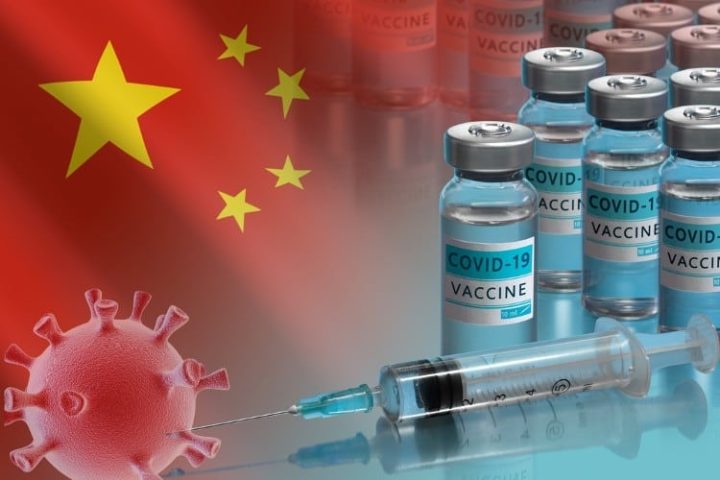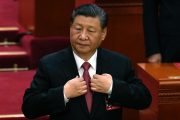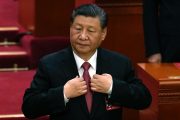
Hesitancy regarding Covid-19 vaccines permeates key sections of mainland China’s population, constituting an increasing challenge for Beijing as it attempts to convince more to get the shot amid the easing of strict Covid-19 measures.
Officially, China’s Covid vaccination rate exceeded 90 percent, but the rate for boosted adults fell to 57.9 percent, and to 42.3 percent for people aged 80 and above, based on government data. These figures caused vaccine advocates to caution against rising deaths due to Covid-19 as the country opens up.
China reported two new Covid-19 deaths for Sunday, compared with none the previous day, increasing the nation’s fatalities to 5,237, the National Health Commission announced.
They were the first deaths associated with Covid-19 officially logged since December 4.
Official figures have become an unreliable guide for many observers, as fewer testing is being conducted across China after the country began to open up.
In September, an article by a publication under the Chinese Centre for Disease Control and Prevention (CDC) admitted the mediocre level of Covid vaccine coverage for older adults, the lack of local doctors in vaccine campaigns, and a paucity of insurance for potential side effects contributed to a drop in enthusiasm.
“It’s a very special case in China because people felt very safe for a long time,” said pro vaccine Dr. Stephanie Jean-Tsang, an assistant professor at Hong Kong Baptist University who specializes in health messaging.
Yet surprisingly, the Chinese government has not made Covid vaccination mandatory owing to signals that the public would retaliate against such policies.
Last week, China said it would begin to provide a second booster — or fourth shot — for high-risk groups and people over 60 years old.
Overseas-developed mRNA “vaccines” are inaccessible to the public in mainland China, which has depended on standard inactivated-virus vaccines by Sinopharm, Sinovac’s Coronavac, and other domestically developed options for its vaccine rollout, and which the medical community has deemed to be “safe.”
Notably, China has not launched its own version of an mRNA “vaccine.”
Although China’s medical community did not question China’s vaccines, some think that the foreign-made mRNA shots are better, said Dr. Kelly Lei, a physician in the southern Chinese city of Shenzhen.
In late November, the hashtag “Sinovac vaccine counterfeit” rose to five million views on the Twitter-like Weibo platform, with many posts talking about lumps and hair loss apparently sparked by the Chinese-made vaccine.
“At least a half of doctors and educated people wanted to get the mRNA ones and refused to get the Chinese ones,” Lei said.
“After a while, people see no hope and also they are kind of forced to get the Chinese ones, so they have to accept it. Some doctors talked to me, and said it’s useless anyway, why waste the money.”
These Chinese anecdotes come amid worldwide reports of deaths and injuries linked to the mRNA “vaccines,” from companies such as Pfizer and Moderna.
Although the immunization campaign using domestically produced inactivated vaccines was unveiled as early as July 2020, Beijing hesitated including those aged 60 and over for about nine months, quoting a lack of data on efficacy and safety for the older group.
When China finally decided to offer the free voluntary jab to senior citizens, it had tried to manage the spread of Covid-19 via stringent and freedom-limiting measures including lockdowns and mask-wearing.
The communist state also effectively unveiled a propaganda campaign over its Covid-19 management, highlighting its low death and infection figures against other countries, particularly the United States.
Since the start of Covid-19, China has recorded around 5,000 deaths, whereas the U.S. statistics linked to Covid-19 deaths exceeded one million.
China’s entrenched vaccine hesitancy can be attributed to the country’s struggles with product-quality issues in the manufacturing sectors, due to lax oversight and corruption. For example, baby formula mixed with industrial chemicals and contaminated blood thinner are merely two examples of the string of product-quality scandals that the communist state has had to grapple with.
Huang Yanzhong, a China healthcare specialist at Seton Hall University, said that the government fared pretty poorly in terms of messaging around the virus — despite near total control of the media environment in the country.
“Many of those, the vaccine skeptics, are liberal-minded people. They just don’t trust the Chinese vaccines and the government narrative on the effectiveness of the Chinese vaccines,” he said.
As a result, China’s National Health Commission (NHC) announced in December that it will set up a working group to spearhead efforts to inject those over the age of 60. The NHC also suggested using big data to push jabs in nursing homes and activity centres for seniors.
Those who reject the shot will be questioned for an explanation, the top health body outlined in a work plan.
The NHC’s plans do not sit well with many Chinese people, young or old. For instance, Faye Fei, a 32-year-old lifestyle blogger who lives in the city of Hangzhou, about an hour from Shanghai by high-speed train, does not feel the need for the shot.
“I have an advantage in that I don’t go to an office to work. I don’t have a job at a company or in a government agency and don’t really come into contact with a lot of people,” she said. “Also I think I protect myself pretty well.” In addition, Faye says she’s young and not afraid of Covid-19 anymore. Also, Faye believes the virus is evolving too quickly for the vaccines to have decent efficacy.
An older woman known as Madam Shao has hypertension and fears the side effects of the shot. Shao maintains she would not catch Covid-19 as she rarely leaves home.
“My son usually buys groceries and my daily necessities for me, and he drives me to visit our relatives occasionally. I have no contact with strangers,” she said.
Since June, Shao’s community office has phoned her twice a month to persuade her to take the shot. In September, four community workers, including a doctor, came to her doorstep with a blood-pressure monitor and the vaccine, and took her blood pressure on the spot. It was 210/110 mmHG, considered severe hypertension. “With my health condition, I guess I will never consider vaccination. I’m willing to support the national policy, but I can’t bet my life on it,” she said.



